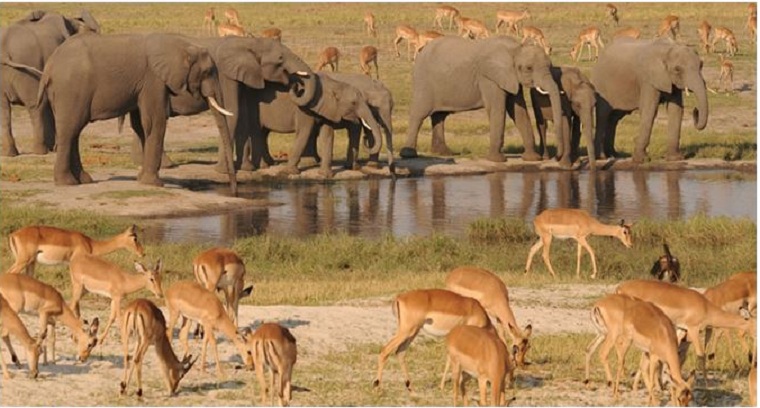 The Zimbabwe government has banned mining in game reserves following concerns from conservationists who accused two Chinese companies of exploring for coal in the biggest national park, Hwange.
The Zimbabwe government has banned mining in game reserves following concerns from conservationists who accused two Chinese companies of exploring for coal in the biggest national park, Hwange.
Hwange, in western Zimbabwe, is home to the country’s biggest elephant herd – more than 40 000, large prides of lions as well as buffalo, among other game and birds that are popular with tourists.
The park is near a forest where 22 elephants have died in mysterious circumstances.
The Bhejane Trust, which works with the wildlife authority in conservation in Hwange and the Safari Operators Association said two Chinese firms were allocated concessions inside the park.
“Mining on areas held by national parks is banned with immediate effect. Steps are being undertaken to immediately cancel all mining title held in national parks,” Information Minister Monica Mutsvangwa told reporters.
Mines Minister Winston Chitando said state mining arm Zimbabwe Mining Development Corporation held the Hwange concession but then partnered the two Chinese firms, Afrochine Energy and Zimbabwe Zhongxin Coal Mining Group.
Bhejane said while on a monitoring mission inside the park with park rangers recently, they intercepted the two companies’ workers conducting exploratory drilling.
“Parks arrested them and turned them over to the police. However, they soon reappeared with a permit giving them the right to carry on in the park with exploratory drilling,” Bhejane said in a statement.
AfroChine official Pardon Kufakunesu denied exploring in the game park. Zhongxin could not be reached for comment.-Reuters
(95 VIEWS)






0 Comments